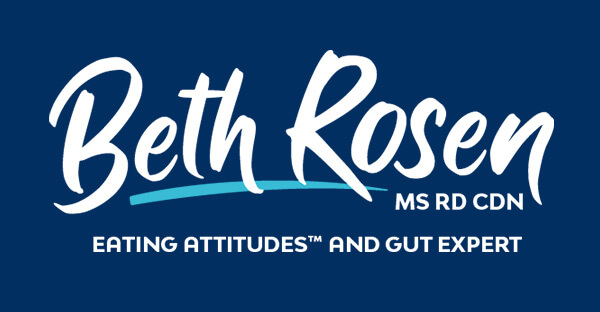How to document and explain your IBS for the best medical care.
The Importance of Carbohydrates to Minimize IBS Symptoms
Current diet trends can be confusing, leaving us missing out of enough carbohydrates to support our brain and gut health.
There are so many diet trends sending us mixed signals about food; we may be avoiding the very thing that will keep our gut functioning well.

When faced with the challenge of potentially altering your eating pattern for the sake of better health, the task of finding foods you enjoy and that are easy to prepare can be daunting. This is especially true for those with digestive disorders who may fear that food is the cause of their symptoms, or that a current food rule they are following will be broken and this will impact other aspects of their health.
In my practice, I see a common theme in the beliefs and attitudes about food. Many of my clients come in with a fear of carbohydrates, most likely stemming from numerous fad diets that, in recent years, have vilified carbohydrates as the cause of everything that ails them. But, carbohydrates play an important role in our bodies, starting with our brains and ending in our guts.
Carbs fuel our Brain
Carbohydrates are the source of the essential and sole fuel for our brain: Glucose. Glucose becomes available to our brain when carbohydrates are digested and broken down into simple sugars; glucose being one of them. When the body doesn’t have enough glucose to fuel the brain, you may feel tired, sluggish, or unable to concentrate. This is one of your body’s ways of signaling you to eat and refuel. When we don’t honor our bodies hunger cues and restrict carbohydrates, the body does have a secondary way of getting glucose; it can make it by using the substrates that the body usually uses to build muscle tissue. But over time, this second method can cause muscle aches and tax the liver and kidneys.
Carbs help our Gut
In our digestive tract live trillions of microbes that serve to keep our digestive system well-balanced and running smoothly, communicate with our brain, and boost our immune system, to name a few of their jobs. Carbohydrates play an important role in creating that balance. The microbes that perform the tasks that promote good health and gut function use fiber as their fuel source. And where does fiber come from? Carbohydrates! Fruits, vegetables, nuts, seeds, bean, legumes, and whole grains all contain fiber and are all sources of carbohydrates. Eating a variety of these foods will promote a balanced microbiome in your belly.
Even people with digestive disorders such as Irritable Bowel Syndrome (IBS) need a diet rich in carbohydrates that are high in fiber. Some high-fiber carbohydrates will ferment in the gut or draw water in which can lead to gas and bloating, respectively, while also triggering diarrhea and abdominal pain in some. The low-FODMAP diet, the dietary intervention used to alleviate these symptoms in people with IBS, calls for the removal of fermentable carbohydrates from the diet during the elimination phase, but researchers and Registered Dietitians know that not all carbohydrates ferment, which leaves many food choices to supply the much-needed fiber supply to the beneficial microbes.
You will hear and read a lot about having low carb, no carbs, all carbs, but as a Dietitian who specializes working with clients who have IBS and digestive issues… those diets will not always be what you need.
The bottom line on what you need: Carbohydrates are necessary to fuel the brain and the gut microbiota. Choosing carbohydrate sources that are low-FODMAP and high in fiber will reduce symptoms associated with IBS, while also promoting correct and effective digestive function.
If you are looking to incorporate low-FODMAP foods into your diet, you often have gut health, IBS or SIBO issues. You can take charge of your health: Start by being ready with your gut health story! Download this free template and have all of your gut health information in one place so that your doctors know the whole story, and you can get diagnosed and treatment quickly. Click here to grab your copy today!

Beth Rosen
Eating Attitudes™ & Gut Expert
Beth Rosen, MS, RD, CDN is a Registered Dietitian and owner of Beth Rosen Nutrition. She practices a non-diet philosophy and is a Health at Every Size" practitioner. Her goal is to end the pain of diet culture, one person at a time. Beth's techniques and programs empower chronic dieters, and those who consider themselves emotional and /or stress eaters, to ditch the vicious cycle of dieting, eat fearlessly by removing Food and diet rules, and mend their relationship with food and their bodies. Beth's works face-to-face with clients in Southbury, CT, and virtually with clients, worldwide.




